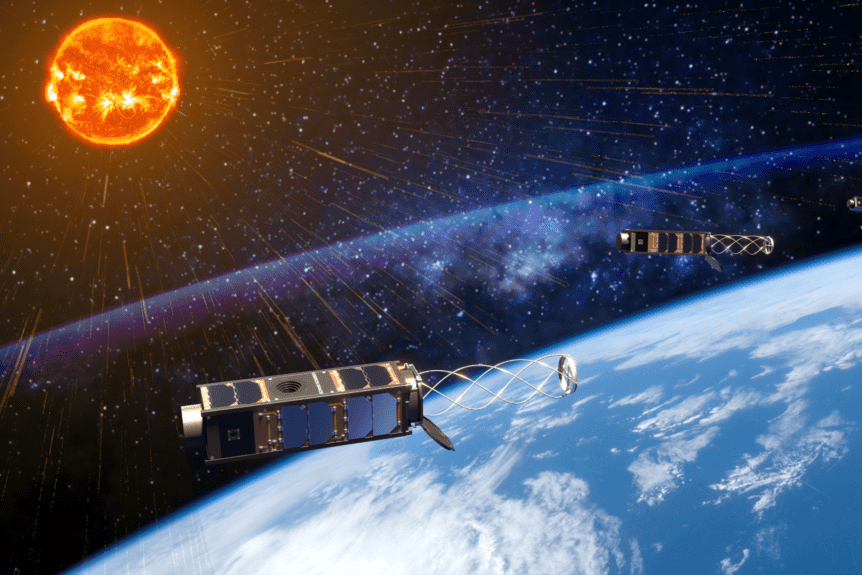The Luxembourg-based and the University of Luxembourg’s Interdisciplinary Centre for Security, Reliability and Trust (SnT) are teaming up to develop Machine Learning models in the field of space weather. The models will be trained on Luxembourg’s supercomputer Meluxina, one of the most powerful computing machines in Europe. The three-year project aligns with Mission Space’s monitoring constellation deployment in 2024.
The research will be led by Prof. Andreas Hein and Dr. Maxime Cordy. According to Hein, “combining SnT’s methods and in-house expertise in an entirely new way promises to help Mission Space undertake more accurate space weather forecasting, with a long-term view of building a space weather excellence centre in Luxembourg. It’s an exciting project.”
Understanding Space Weather: Why Predicting Matters
Space weather, encompassing sun, solar wind, magnetosphere, ionosphere, thermosphere, and exosphere, poses significant risks to technology and human life. The potential global economic impact of space weather events such as a severe geomagnetic storm is great and could incur losses totalling €38,4 BN per day.
The potential impact of creating the world’s most accurate space weather forecasting system spans the space industry, influencing space missions’ timing and duration. Additionally, it could enhance responsiveness in various sectors like power grids, transportation, and emergency management. The financial sector, including insurance and risk management, stands to benefit from improved prediction of space weather effects. The collaboration between Mission Space and the University of Luxembourg also simplifies access to relevant weather data for academia researchers, which could help expand space weather studies.
Luxembourg’s Stellar Ambition
Mission Space founders and Alexey Shirobokov envision positioning Luxembourg as a global hub for space weather research. Bastien Berg, a Luxembourg-City Incubator Coordinator, believes this collaboration demonstrates the vitality of the national innovation ecosystem.
“We’ve been supporting Mission Space for over two years now, and we’ve been able to appreciate the positive evolution of the project, which took full advantage of our wide range of services for startups to accelerate its development. It’s also further proof of the dynamism of the space tech ecosystem in Luxembourg, which boasts many promising startups backed by a large network of highly committed players.”
This promotional article was written by Mission Space as part of the company’s membership with the Paperjam+Delano Business Club. If you wish to become a member of the Club, contact us at .
